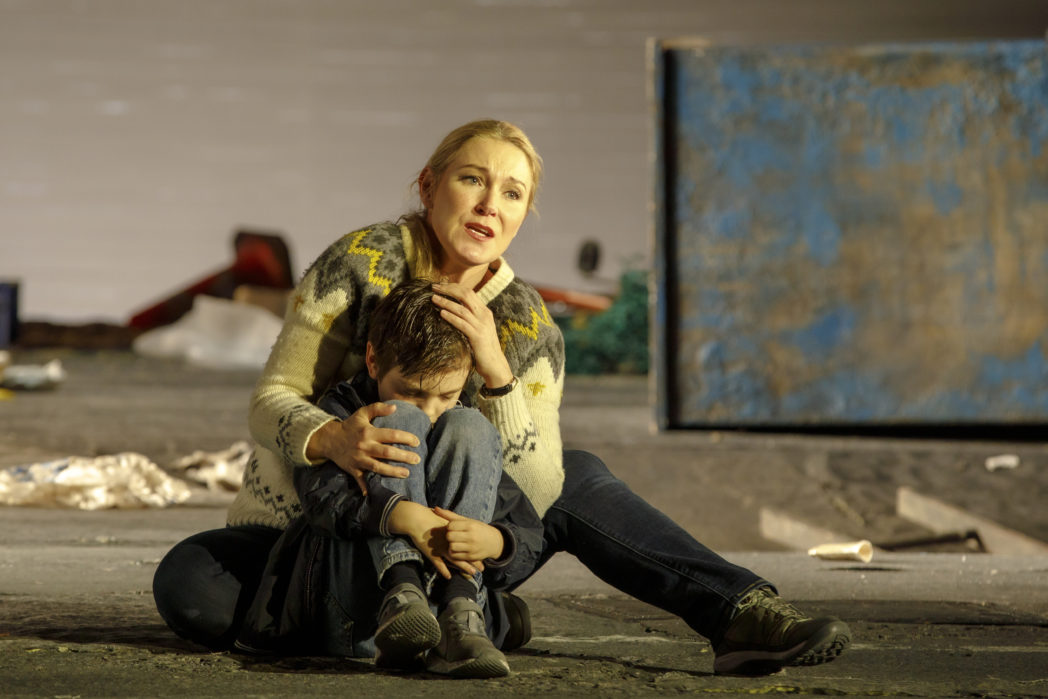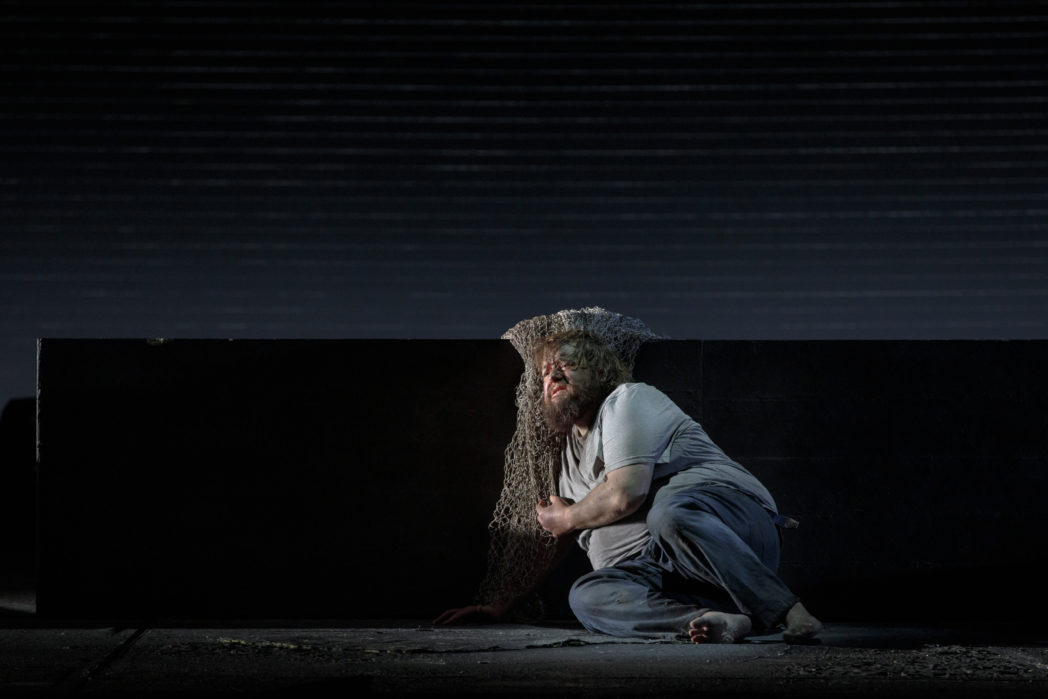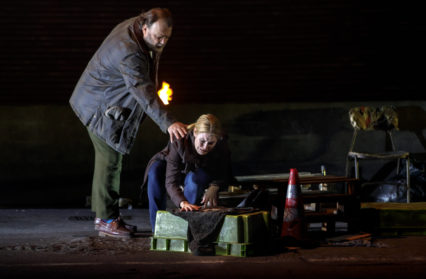David Truslove visited the Royal Opera House to witness a production of Benjamin Britten’s Peter Grimes featuring Allan Clayton and Sir Bryn Terfel.
Performances of Peter Grimes have come a long way since the work’s premiere in June 1945. Not long afterwards critics began overlapping the composer’s personal life onto the central character. As a conscientious objector and a homosexual, Benjamin Britten’s personal choices placed him at some distance from the general public. In choosing to set George Crabbe’s poem The Borough (1810) concerning the tragic plight of an outsider rejected by a tight-knit Suffolk fishing community, it is no surprise that biographical considerations swam to the surface. Neither the music nor Montagu Slater’s libretto were initially fully comprehended, The Times complained that Peter Pears in the title role was ‘not completely convincing as a sadist’, failing to see Grimes as a lonely and tortured individual, and the work in general as a harrowing portrait of intolerance.
Deborah Warner’s recent production at the Royal Opera House asks unflinching questions about society’s role in relation to its exclusion of individuals and suggests how a community itself might feel rejected through decades of urban decay. It’s a slant not previously explored and in view of recent predictions of financial poverty for the UK this production is timely. Crabbe’s Suffolk village is envisaged as Aldeburgh (itself physically cut off from the world), but Warner discards any sepia-tinted poverty (as evoked in Willy Decker’s 2004 version for Covent Garden) and junks a gentrified version of the coastal town that it has become. Instead, Warner opts for a shabby, socially deprived community where mistrust and resentment fester. Inspiration for this contemporary parallel apparently came from a visit to Jaywick Sands in Essex – where signs of economic collapse and unemployment have left their mark. I wonder how its residents might feel about this portrayal, one which seems at odds with the church goers in Act Two? It is such a coastal town as this that Warner and designer Michael Levine have reimagined a post Brexit-Aldeburgh where, beyond its boarded-up shop fronts, grudges born of poverty focus on a loner.
So when a lone fisherman loses an apprentice at sea this aggrieved community rises up not just with righteous indignation but with terrifying destructive power. Within this production’s crowd scenes are union jack toting far-right thugs, extremists seeking a scapegoat for the community’s troubles. This brutish mob is both thrilling and shocking and even turn against the warm-hearted teacher Ellen Orford whose love for Grimes cannot prevent another boy’s death nor his own. In a transformed Prologue where its inquest becomes part of an expressionistic dream sequence, the crowd haunt Grimes’s tormented reveries as he agonises over the accidental death of his apprentice. From a suspended boat the boy’s ghost appears as an aerialist – a masterly directorial stroke and superbly lit by Peter Mumford.

In the title role Allan Clayton finds an ideal balance between tyrant and visionary, formidable yet faraway. He brings tremendous heft when bellowing at his new apprentice (an admirably composed Cruz Fitz) and wonderfully spun legato to his ‘Great Bear’ meditation – an aria notoriously challenging for some tenors. It’s a voice that consistently holds the ear in its beauty and versatility, his appeals for a sheltering home in the final scene demanding our sympathy. His emotional ‘harbour’ is Maria Bengtsson’s tender Ellen Orford, a light, but crystalline soprano, who impresses in her redemptive role. Her pleas for tolerance, ‘Let her among you without fault’, and her embroidery aria were both highpoints of her performance. As the worldly-wise retired Captain Balstrode, Bryn Terfel brings a fireside warmth to his role as the avuncular mediator, his stage-filling baritone almost stealing the show at times, yet sensitive enough in duets with Bengtsson and Clayton to reveal subtle dynamic shading.
The rest of Warner’s cast are vividly individualised and bring to mind characters we might all recognise. James Gilchrist makes a limply sanctimonious Rector, Jacques Imbrailo is the man-about-town quack Ned Keene, while John Graham-Hall persuades as the bible-bashing minister with a roving eye for the sluttish nieces (Jennifer France and Alexandra Lowe) of Catherine Wyn-Rogers’s pub landlady. John Tomlinson is the blustering magistrate Swallow and Rosie Aldridge as Mrs Sedley is the epitome of the curtain-twitching busybody. Elsewhere, ensembles are delivered with assurance, the luminous quartet for female voices memorably sung. But it was the elemental power of the choruses that left an indelible imprint.

At the helm of the Royal Opera House Orchestra was Richard Hetherington, replacing an indisposed Mark Elder, who brought out all the music’s emotional turmoil and savage energy. He teased out the score’s glinting sonorities (a marvellous barn dance in the Act Three pub scene) and integrated the sea interludes into a seamless whole. Above all, this production signified there are no heroes or villains, only victims, and a tragic conflict between compassion and responsibility. Emotionally draining, but brilliantly performed and directed, a revival cannot appear soon enough.
Peter Grimes header image: (Ellen Orford) MARIA BENGTSSON, (Captain) Balstrode BRYN TERFEL © Yasuko Kageyama Bryn Terfel












